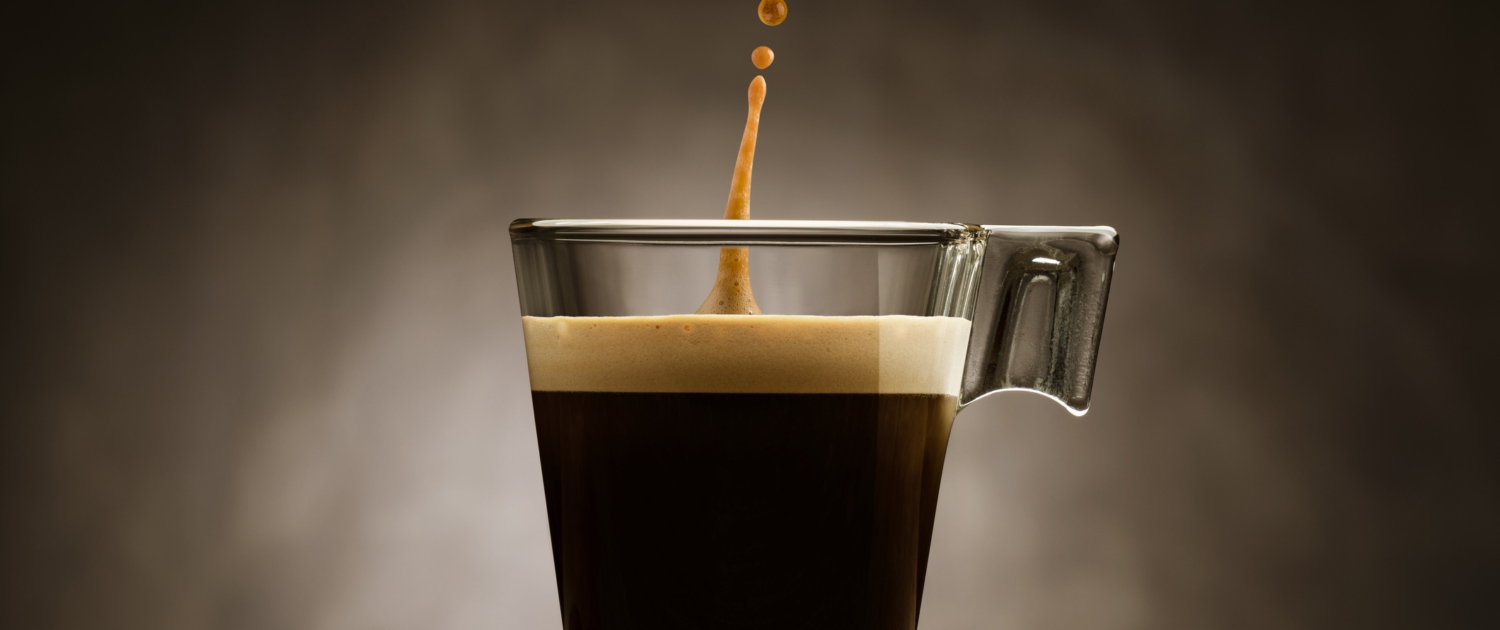Decaf Coffee
– Is Decaffeinated Coffee Good or Bad? –
Coffee is one of the most popular beverages in the world.
Many people rely on the empowering dark liquid on a regular basis.
It not only tastes delicious in all of this various forms. But it also gives us a useful energy boost to get us through our daily lives.
This is thanks to the natural caffeine content in coffee.
However, many people want to enjoy their daily cup of coffee but also intend to limit their caffeine intake the same time.
There may be several reasons why people would consider cutting back on caffeine.
For these people, decaf coffee is an excellent alternative.
In short, decaf coffee is just like regular coffee. Except that the caffeine has been removed, of course.
But what exactly is decaf coffee?
And, is decaffeinated coffee actually good or bad for us?
Here is everything you need to know about decaf coffee. And its health effects, both good and bad.
What is Decaf Coffee?
The name ‘decaf’ is the short synonym for decaffeinated coffee.

It stands for coffee made from decaffeinated coffee beans. On average, at least 97% of their caffeine was removed.
There are quite a lot of ways how you can remove caffeine from coffee. Most common methods include water, organic solvents or carbon dioxide.
Typically, the coffee beans are washed in the solvent. This process is taking place until the caffeine has been extracted into it. After the finish of the process, you are removing the solvent again.
Alternatively, you can also remove caffeine by using carbon dioxide or a charcoal filter. This method is widely known as the Swiss Water Process.
In general, you are aiming to decaffeinate the beans before you are roasting and grinding them.
As a result, the nutritional value of decaf coffee remains high quality. Essentially, it should almost be identical to regular coffee.
Both, caffeinated and decaffeinated coffee, ideally still have the same qualities. This is apart from the caffeine content, obviously.
However, the taste and smell may be a bit different. It may become a little milder. And, the color may change as well. It mostly depends on the specific method you are using.
In the end, this may even make decaf coffee more pleasing to some consumers. Especially to those, who are more sensitive to the usual bitter taste and regular smell of coffee.
How to Make it? – The Process of Decaffeination
The aim of decaffeination is to nearly remove all of the caffeine from the beans.
Usually, the process is happening while the beans are still ‘green’. As we learned already, this means that they have not been roasted or ground yet.
The general rule is that decaffeinated coffee must not contain more than 0.1% caffeine. Or even less. It is the norm in roasted coffee beans.
For instant coffee, it can usually be a little higher, namely up to 0.3%.
In summary, you define the process of decaffeination in three main steps.
- You are swelling the greens beans with water. Or, you steam with water instead. So, the caffeine can be extracted.
- Next and when ready, you are extracting the caffeine from the beans. This step is done with water again. Or, with a solvent or activated carbon.
- Lastly, you are drying the decaffeinated coffee beans. Your goal is to bring them back to their normal moisture level.
Typical types of solvents are ethyl acetate, methylene chloride (Dichloromethan, or DCM), or supercritical CO2.
The manufacturing processes of decaffeination may slightly differ from one factory to another. But generally, the majority is working with solvents.
In practice, you are circulating the water or the solvent around the beans, soaked up with water. And, this interaction causes the caffeine to be released.
After, you are draining the entire mixture from the extracting vessel. Overall, you are repeating this process several times.
In the end, only a tiny amount of caffeine is still left in the bean.
Additionally, producers carefully control and monitor every step of the decaffeination process. The goal is not to have any possible solvent residues remain below the strict limits fixed by law.
Caffeine Content of Decaf Coffee
So, how much caffeine exactly is still in decaf coffee?

First, we need to get rid of a very common misconception.
Decaf Coffee is NOT completely free of caffeine.
Typically, it can contain varying amounts of caffeine. The exact amount usually depends on the exact decaffeination process. And, the types of beans and solvent that were chosen.
On average, it is usually about 3 mg of caffeine per cup.
One widely respected study found following. Each cup of decaf coffee contains between 0 and up to 7 mg of caffeine. 7 mg seems to be the absolute maximum.
On the other hand, an average cup of regular coffee contains between 70 to 140 mg of caffeine. As you can see, this is a massive difference.
Again, the exact amount in regular coffee also depends on the coffee type. In addition, the preparation method and actual cup size are also key factors to take into consideration.
So, how can we sum up all of this?
Yes, decaf coffee may not be completely caffeine free. But, the amount is usually very small and much less than in regular coffee.
Decaf Coffee – Antioxidants and Nutrients
Coffee does have many great health benefits.
On top, many people even say that it makes us happier and live longer.
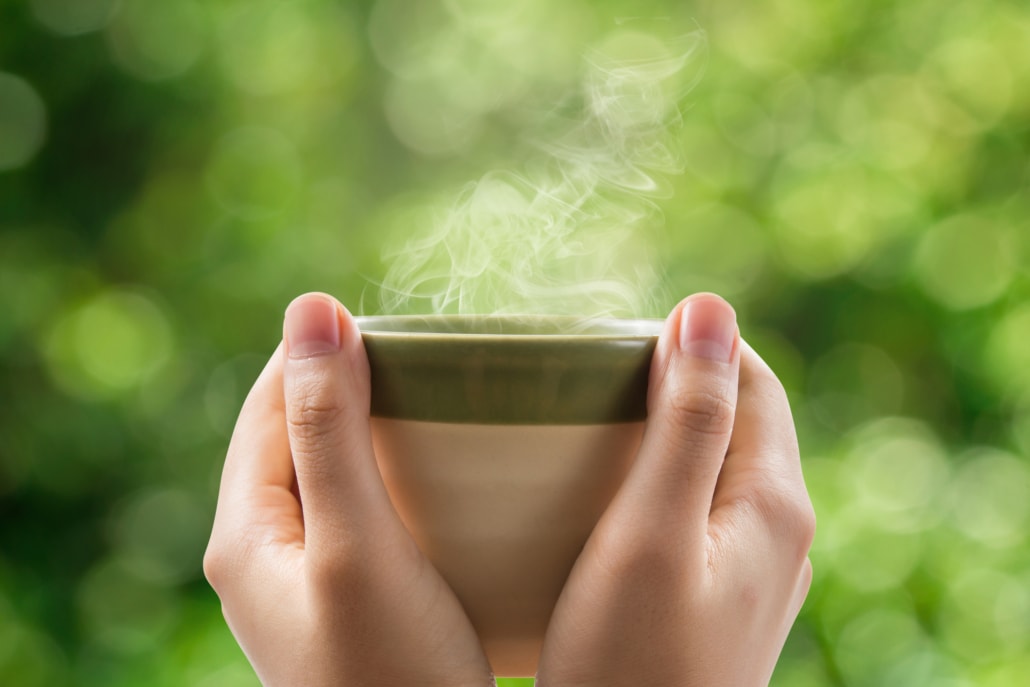
One of these very benefiting and useful components is antioxidants in the coffee. The beverage is a massive source of antioxidants for many of us.
In fact, it is actually the single biggest source of antioxidants in the Western diet.
Naturally, various kinds of fruit and vegetables contain more antioxidants. But in many Western societies, many people commonly consume a lot more coffee.
Furthermore, decaf coffee does contain similar amounts of antioxidants as regular coffee. There is usually no big difference here. Just in some cases, they may be up to 15% lower.
If there is any difference. The small, potential loss of antioxidants is most likely caused during the decaffeination process then.
In regular and also in decaf coffee, the main types of antioxidants are hydrocinnamic acids and polyphenols.
What are antioxidants good for?
They are very effective at neutralizing reactive compounds called free radicals.
This reduces oxidative damage. On top, it may help prevent certain diseases. These include heart disease, cancer and type 2 diabetes.
Besides the very beneficial antioxidants, decaf coffee also contains minor amounts of some nutrients.
These amounts are not major in general. However, one cup of decaf coffee provides 2.4% of the recommended daily intake of magnesium. In addition, it also supplies 4.8% of potassium, 2.5% of niacin, also known vitamin B3.
This may not seem a lot. But it can add up quickly, if you drink 2 or 3 cups per day.
What are the Health Benefits
In the past, coffee as such had a pretty bad image.
It was commonly associated with a rather unhealthy lifestyle. However, the truth is that coffee is mostly good for you.

Indeed, this empowering dark liquid is linked to numerous health benefits. Many of them are thanks to its antioxidant content and other active substances.
Even so, the specific health benefits of especially decaf coffee can be hard to determine.
This has two main reasons. Firstly, most studies on coffee do not really distinguish between regular and decaf coffee.
Indeed, many studies do not even consider or include decaf coffee in the first place.
And secondly, most of the coffee studies are typically observational. Many times, hard, scientific proof is missing.
Because, it is very difficult to study and record the effects of coffee consumption in general.
In essence, the majority of studies cannot prove that coffee ‘causes’ the benefits. They can only highlight that drinking coffee is ‘associated’ with them.
Nonetheless, here are some of the most notable benefits.
-
Type 2 Diabetes
Drinking coffee, both regular and decaf, may reduce the risk of type 2 diabetes. In fact, each daily cup may lower the risk by up to 7%.
-
Liver Function
The effects of decaf coffee on liver function are not that well studied yet. There is a lot more promising research for regular coffee in place already.
However, one major observational report links decaf coffee to a reduction of liver enzyme levels. This consequently suggests a protective effect.
-
Premature Death
Research associates drinking decaf coffee with a small but significant reduction in the risk of premature death.
Similar findings suggest the same reduced risks for death from stroke. or heart disease.
-
Aging
Both regular and decaf coffee seem to have positive effects on age-related mental decline.
There is also considerable findings suggesting that coffee in general supports us living longer.
-
Neurodegenerative Diseases
Several studies on the human cell also show following. Decaf coffee may protect our neurons in the brain.
As a result, this could help prevent the development of neurodegenerative diseases such as Alzheimer’s and Parkinson’s.
Furthermore, quite many studies show that especially regular coffee consumers are benefitting. However, more studies are needed on decaf coffee, specifically in this regard.
-
Heartburn
One very common side effect of drinking regular, caffeinated coffee may be heartburn or acid reflux. Many coffee consumers are reporting this.
Having decaf coffee instead may help in this matter. Because it may relieve this uncomfortable side effect.
In fact, studies show that decaf coffee causes significantly less acid reflux than regular coffee.
-
Cancer
Drinking two or more cups of decaf coffee per day may be good against cancer.
Research associates the consumption with up to a 48% lower risk of developing rectal cancer.
Is Normal Coffee Better?
It seems that regular coffee has several advantages over decaf coffee.

Coffee is probably best known for its stimulant effects. Millions of people like to rely on it on a daily basis.
The empowering beverage provides us with a great energy boost. It helps us to manage our daily tasks in a more efficient way, mentally and physically.
In practice, the coffee’s stimulant increases our alertness. And, it also reduces any feelings of tiredness.
These effects are directly linked to the stimulant caffeine. The coffee plant and its beans naturally contain it.
Furthermore, some of the beneficial effects of regular coffee are directly associated with caffeine.
Therefore, decaf coffee should not be able to enable these effects, then.
Here are some of these benefits. They probably only apply to regular coffee, and not to decaf.
- Improved mood, reaction time, memory and mental function
- Increased metabolic rate and fat burning
- Enhanced athletic performance
- Reduced risk of mild depression and suicidal thoughts in women
- Much lower risk of liver cirrhosis and end-stage liver damage
However, I would like to remind you of a circumstance I already shared earlier. The research on regular coffee is way more thorough and extensive.
Overall, there is much less research available on decaf coffee.
If there would be more research. Maybe decaf coffee could also prove to be beneficial in additional regards.
Is Regular or Decaf Coffee Better for me?
Unfortunately, I am not able to provide you with a clear yes or no answer.

Especially, when it comes to caffeine. There is quite a lot of individual variability to the level of tolerance to the stimulant.
For some people, one or two cups of coffee can already mean a lot. Whereas, others can easily consume one or two. But, six or more cups might be too much instead.
In general, excessive caffeine overconsumption may overwhelm the central nervous system.
Additionally, it may lead to anxiety, digestive problems or heart arrhythmia. Or, even more sensitive people may find trouble sleeping.
Therefore, people who react in a more sensitive way. They should probably limit their intake of regular coffee. Instead, they can switch to decaf coffee or tea.
Also people with certain medical conditions might want to consider the same step. It is best to see a doctor and seek medical advice, if you have any concerns.
Some medical conditions require caffeine-restricted diets. This also includes patients taking prescribed medications that can interact with caffeine.
In addition, pregnant and breastfeeding women should also act more cautious. It is advisable for them to also limit their caffeine intake.
Furthermore, the same applies to children, adolescents and adults suffering from anxiety or trouble sleeping.
Again and as mentioned earlier already. If you have any doubts or concerns. Please, go and see a medical advisor.
The Bottom Line
Despite of some potential side effects, coffee is most definitely one of the healthiest beverages on the planet. There is absolutely no doubt about.
For the great majority of people, it provides us with a ton of great benefits.
It is a main source for antioxidants. And as a result, it reduces the risk of various kinds of serious diseases.
Nonetheless, not everyone can drink regular coffee. This is especially due to the caffeine, which may cause problems to some people.
In this case and for these individuals, decaf coffee is certainly an excellent choice to enjoy coffee. Without the concern of any potential caffeine side effects in it.
Overall, decaf coffee hosts most of the same health benefits. We highlighted the most notable ones in this article together.
And on top, there are many delicious decaf coffee types for to try out there.
So, how about you? Do you personally prefer regular or decaf coffee?
And, what are the reasons you are maybe choosing one over the other?
Feel free to share your (decaf) coffee experiences with us.
Until then, stay healthy, safe and properly (de-)caffeinated.
Cheers!
Related Posts
 https://www.siamhillscoffee.com/wp-content/uploads/iStock-1074560652.jpg
1414
2121
Siamhillscoffee
https://www.siamhillscoffee.com/wp-content/uploads/coffee-logo.png
Siamhillscoffee2021-04-25 11:37:482021-04-25 11:37:488 Fascinating Facts About The History of Coffee – ‘A Drink For The Devil’ –
https://www.siamhillscoffee.com/wp-content/uploads/iStock-1074560652.jpg
1414
2121
Siamhillscoffee
https://www.siamhillscoffee.com/wp-content/uploads/coffee-logo.png
Siamhillscoffee2021-04-25 11:37:482021-04-25 11:37:488 Fascinating Facts About The History of Coffee – ‘A Drink For The Devil’ –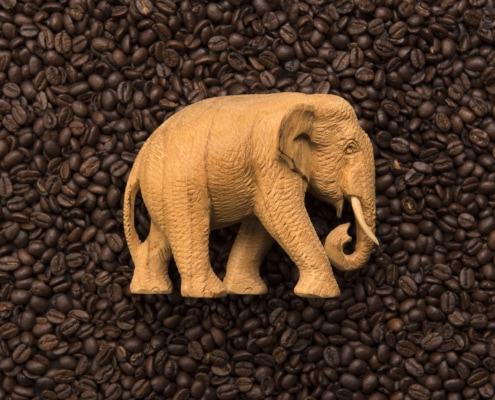 https://www.siamhillscoffee.com/wp-content/uploads/Elephant-coffee-–-The-new-luxury-coffee-–-How-great-is-it-1.jpg
1445
2075
Siamhillscoffee
https://www.siamhillscoffee.com/wp-content/uploads/coffee-logo.png
Siamhillscoffee2021-04-25 11:23:422021-04-25 11:23:42Elephant coffee – The new luxury coffee – How great is it?
https://www.siamhillscoffee.com/wp-content/uploads/Elephant-coffee-–-The-new-luxury-coffee-–-How-great-is-it-1.jpg
1445
2075
Siamhillscoffee
https://www.siamhillscoffee.com/wp-content/uploads/coffee-logo.png
Siamhillscoffee2021-04-25 11:23:422021-04-25 11:23:42Elephant coffee – The new luxury coffee – How great is it? https://www.siamhillscoffee.com/wp-content/uploads/Is-Latte-Art-Good-or-Bad-–-Does-Latte-Art-Make-our-Coffee-Better-or-Worse-–-1.jpg
1412
2122
Siamhillscoffee
https://www.siamhillscoffee.com/wp-content/uploads/coffee-logo.png
Siamhillscoffee2021-04-25 10:57:092021-04-25 11:02:29Is Latte Art Good or Bad? – Does Latte Art Make our Coffee Better or Worse? –
https://www.siamhillscoffee.com/wp-content/uploads/Is-Latte-Art-Good-or-Bad-–-Does-Latte-Art-Make-our-Coffee-Better-or-Worse-–-1.jpg
1412
2122
Siamhillscoffee
https://www.siamhillscoffee.com/wp-content/uploads/coffee-logo.png
Siamhillscoffee2021-04-25 10:57:092021-04-25 11:02:29Is Latte Art Good or Bad? – Does Latte Art Make our Coffee Better or Worse? – https://www.siamhillscoffee.com/wp-content/uploads/Filter-Coffee-and-Espresso-–-What-is-the-Difference-–-1.jpg
1397
2146
Siamhillscoffee
https://www.siamhillscoffee.com/wp-content/uploads/coffee-logo.png
Siamhillscoffee2021-04-03 02:55:042021-04-03 02:55:04Filter Coffee and Espresso – What is the Difference? –
https://www.siamhillscoffee.com/wp-content/uploads/Filter-Coffee-and-Espresso-–-What-is-the-Difference-–-1.jpg
1397
2146
Siamhillscoffee
https://www.siamhillscoffee.com/wp-content/uploads/coffee-logo.png
Siamhillscoffee2021-04-03 02:55:042021-04-03 02:55:04Filter Coffee and Espresso – What is the Difference? – https://www.siamhillscoffee.com/wp-content/uploads/Coffee-and-Fair-Trade-–-Is-Fair-Trade-Coffee-Good-or-Bad-–-1.jpg
1414
2121
Siamhillscoffee
https://www.siamhillscoffee.com/wp-content/uploads/coffee-logo.png
Siamhillscoffee2021-03-21 04:14:092021-03-21 04:14:09Coffee and Fair Trade – Is Fair Trade Coffee Good or Bad? –
https://www.siamhillscoffee.com/wp-content/uploads/Coffee-and-Fair-Trade-–-Is-Fair-Trade-Coffee-Good-or-Bad-–-1.jpg
1414
2121
Siamhillscoffee
https://www.siamhillscoffee.com/wp-content/uploads/coffee-logo.png
Siamhillscoffee2021-03-21 04:14:092021-03-21 04:14:09Coffee and Fair Trade – Is Fair Trade Coffee Good or Bad? – https://www.siamhillscoffee.com/wp-content/uploads/How-To-Open-A-Coffee-Shop-The-Coffee-Shop-Equipment-List-You-Need-1.jpg
1414
2121
Siamhillscoffee
https://www.siamhillscoffee.com/wp-content/uploads/coffee-logo.png
Siamhillscoffee2021-03-21 04:08:192021-03-21 04:08:19How To Open A Coffee Shop – The Coffee Shop Equipment List You Need
https://www.siamhillscoffee.com/wp-content/uploads/How-To-Open-A-Coffee-Shop-The-Coffee-Shop-Equipment-List-You-Need-1.jpg
1414
2121
Siamhillscoffee
https://www.siamhillscoffee.com/wp-content/uploads/coffee-logo.png
Siamhillscoffee2021-03-21 04:08:192021-03-21 04:08:19How To Open A Coffee Shop – The Coffee Shop Equipment List You Need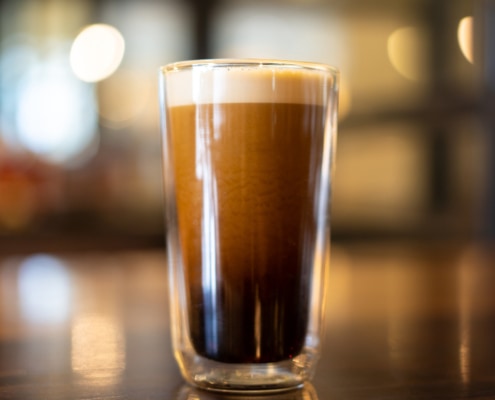 https://www.siamhillscoffee.com/wp-content/uploads/Beer-Coffee-Everybodys-Dream-Come-True-–-1.jpg
1414
2121
Siamhillscoffee
https://www.siamhillscoffee.com/wp-content/uploads/coffee-logo.png
Siamhillscoffee2021-03-14 03:21:082021-03-14 03:21:08Beer Coffee – Everybody’s Dream Come True –
https://www.siamhillscoffee.com/wp-content/uploads/Beer-Coffee-Everybodys-Dream-Come-True-–-1.jpg
1414
2121
Siamhillscoffee
https://www.siamhillscoffee.com/wp-content/uploads/coffee-logo.png
Siamhillscoffee2021-03-14 03:21:082021-03-14 03:21:08Beer Coffee – Everybody’s Dream Come True – https://www.siamhillscoffee.com/wp-content/uploads/Coffee-Cupping-–-How-to-Professionally-Taste-Coffee-–-1-scaled.jpg
1707
2560
Siamhillscoffee
https://www.siamhillscoffee.com/wp-content/uploads/coffee-logo.png
Siamhillscoffee2021-02-20 05:38:122021-03-03 10:43:47Coffee Cupping – How to Professionally Taste Coffee –
https://www.siamhillscoffee.com/wp-content/uploads/Coffee-Cupping-–-How-to-Professionally-Taste-Coffee-–-1-scaled.jpg
1707
2560
Siamhillscoffee
https://www.siamhillscoffee.com/wp-content/uploads/coffee-logo.png
Siamhillscoffee2021-02-20 05:38:122021-03-03 10:43:47Coffee Cupping – How to Professionally Taste Coffee – https://www.siamhillscoffee.com/wp-content/uploads/What-is-Coffee-Roasting-–-Everything-You-Need-to-Know-–-1.jpg
1414
2121
Siamhillscoffee
https://www.siamhillscoffee.com/wp-content/uploads/coffee-logo.png
Siamhillscoffee2021-02-20 05:19:592021-03-03 10:49:15What is Coffee Roasting? – Everything You Need to Know –
https://www.siamhillscoffee.com/wp-content/uploads/What-is-Coffee-Roasting-–-Everything-You-Need-to-Know-–-1.jpg
1414
2121
Siamhillscoffee
https://www.siamhillscoffee.com/wp-content/uploads/coffee-logo.png
Siamhillscoffee2021-02-20 05:19:592021-03-03 10:49:15What is Coffee Roasting? – Everything You Need to Know – https://www.siamhillscoffee.com/wp-content/uploads/Butter-Coffee-Myths-versus-Facts-–-1.jpg
1414
2121
Siamhillscoffee
https://www.siamhillscoffee.com/wp-content/uploads/coffee-logo.png
Siamhillscoffee2021-02-20 05:14:182021-03-03 10:50:40Butter Coffee – Myths versus Facts –
https://www.siamhillscoffee.com/wp-content/uploads/Butter-Coffee-Myths-versus-Facts-–-1.jpg
1414
2121
Siamhillscoffee
https://www.siamhillscoffee.com/wp-content/uploads/coffee-logo.png
Siamhillscoffee2021-02-20 05:14:182021-03-03 10:50:40Butter Coffee – Myths versus Facts – https://www.siamhillscoffee.com/wp-content/uploads/What-is-Specialty-Coffee-–-Everything-You-Need-to-Know-–-1-1.jpg
1414
2121
Siamhillscoffee
https://www.siamhillscoffee.com/wp-content/uploads/coffee-logo.png
Siamhillscoffee2021-02-20 05:10:372021-03-03 10:51:58What is Specialty Coffee? – Everything You Need to Know –
https://www.siamhillscoffee.com/wp-content/uploads/What-is-Specialty-Coffee-–-Everything-You-Need-to-Know-–-1-1.jpg
1414
2121
Siamhillscoffee
https://www.siamhillscoffee.com/wp-content/uploads/coffee-logo.png
Siamhillscoffee2021-02-20 05:10:372021-03-03 10:51:58What is Specialty Coffee? – Everything You Need to Know –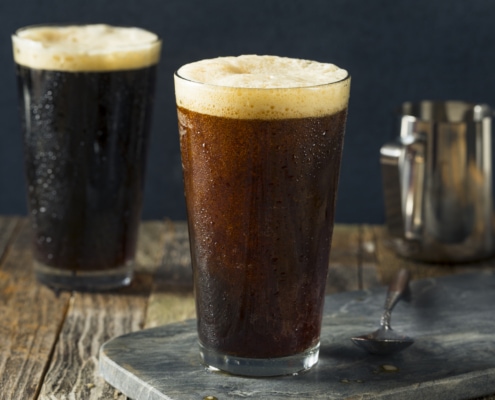 https://www.siamhillscoffee.com/wp-content/uploads/Nitro-Coffee-The-New-Big-Coffee-Trend-–-1.jpg
1414
2121
Siamhillscoffee
https://www.siamhillscoffee.com/wp-content/uploads/coffee-logo.png
Siamhillscoffee2021-02-20 05:03:032021-03-03 10:53:11Nitro Coffee – The New Big Coffee Trend –
https://www.siamhillscoffee.com/wp-content/uploads/Nitro-Coffee-The-New-Big-Coffee-Trend-–-1.jpg
1414
2121
Siamhillscoffee
https://www.siamhillscoffee.com/wp-content/uploads/coffee-logo.png
Siamhillscoffee2021-02-20 05:03:032021-03-03 10:53:11Nitro Coffee – The New Big Coffee Trend – https://www.siamhillscoffee.com/wp-content/uploads/Make-Your-Coffee-Healthy-–-Best-10-Ways-For-A-Better-Coffee-Experience-–-1.jpg
1414
2121
Siamhillscoffee
https://www.siamhillscoffee.com/wp-content/uploads/coffee-logo.png
Siamhillscoffee2021-02-12 08:13:182021-03-03 10:57:16Make Your Coffee Healthy – Best 10 Ways For A Better Coffee Experience –
https://www.siamhillscoffee.com/wp-content/uploads/Make-Your-Coffee-Healthy-–-Best-10-Ways-For-A-Better-Coffee-Experience-–-1.jpg
1414
2121
Siamhillscoffee
https://www.siamhillscoffee.com/wp-content/uploads/coffee-logo.png
Siamhillscoffee2021-02-12 08:13:182021-03-03 10:57:16Make Your Coffee Healthy – Best 10 Ways For A Better Coffee Experience – https://www.siamhillscoffee.com/wp-content/uploads/Decaf-Coffee-–-Is-Decaffeinated-Coffee-Good-or-Bad-–-1.jpg
1415
2120
Siamhillscoffee
https://www.siamhillscoffee.com/wp-content/uploads/coffee-logo.png
Siamhillscoffee2021-02-12 07:57:572021-03-03 11:01:42Decaf Coffee – Is Decaffeinated Coffee Good or Bad? –
https://www.siamhillscoffee.com/wp-content/uploads/Decaf-Coffee-–-Is-Decaffeinated-Coffee-Good-or-Bad-–-1.jpg
1415
2120
Siamhillscoffee
https://www.siamhillscoffee.com/wp-content/uploads/coffee-logo.png
Siamhillscoffee2021-02-12 07:57:572021-03-03 11:01:42Decaf Coffee – Is Decaffeinated Coffee Good or Bad? – https://www.siamhillscoffee.com/wp-content/uploads/We-Love-Coffee-–-10-Best-Reasons-Why-Coffee-is-Good-For-You-1-scaled.jpg
1707
2560
Siamhillscoffee
https://www.siamhillscoffee.com/wp-content/uploads/coffee-logo.png
Siamhillscoffee2021-02-12 07:43:082021-03-03 11:05:47We Love Coffee – 10 Best Reasons Why Coffee is Good For You –
https://www.siamhillscoffee.com/wp-content/uploads/We-Love-Coffee-–-10-Best-Reasons-Why-Coffee-is-Good-For-You-1-scaled.jpg
1707
2560
Siamhillscoffee
https://www.siamhillscoffee.com/wp-content/uploads/coffee-logo.png
Siamhillscoffee2021-02-12 07:43:082021-03-03 11:05:47We Love Coffee – 10 Best Reasons Why Coffee is Good For You –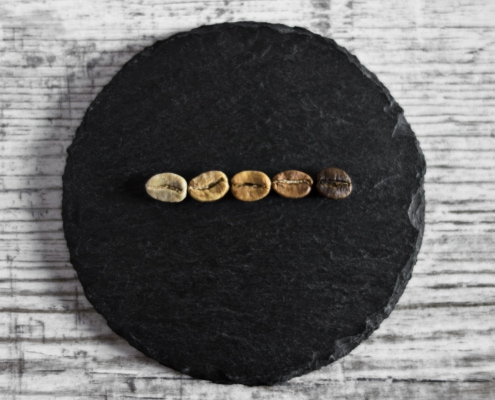 https://www.siamhillscoffee.com/wp-content/uploads/Coffee-Roast-Levels-1-scaled.jpg
1707
2560
Siamhillscoffee
https://www.siamhillscoffee.com/wp-content/uploads/coffee-logo.png
Siamhillscoffee2021-02-12 06:58:112021-03-03 11:44:54Coffee Roast Levels – The Differences Between Light, Medium and Dark Roasts –
https://www.siamhillscoffee.com/wp-content/uploads/Coffee-Roast-Levels-1-scaled.jpg
1707
2560
Siamhillscoffee
https://www.siamhillscoffee.com/wp-content/uploads/coffee-logo.png
Siamhillscoffee2021-02-12 06:58:112021-03-03 11:44:54Coffee Roast Levels – The Differences Between Light, Medium and Dark Roasts – https://www.siamhillscoffee.com/wp-content/uploads/What-is-a-Filter-Coffee-–-A-Complete-Guide-–-1-scaled.jpg
1707
2560
Siamhillscoffee
https://www.siamhillscoffee.com/wp-content/uploads/coffee-logo.png
Siamhillscoffee2021-02-12 06:44:562021-03-03 11:48:24What is a Filter Coffee? – A Complete Guide –
https://www.siamhillscoffee.com/wp-content/uploads/What-is-a-Filter-Coffee-–-A-Complete-Guide-–-1-scaled.jpg
1707
2560
Siamhillscoffee
https://www.siamhillscoffee.com/wp-content/uploads/coffee-logo.png
Siamhillscoffee2021-02-12 06:44:562021-03-03 11:48:24What is a Filter Coffee? – A Complete Guide – https://www.siamhillscoffee.com/wp-content/uploads/History-of-Coffee-1-scaled.jpg
1707
2560
Siamhillscoffee
https://www.siamhillscoffee.com/wp-content/uploads/coffee-logo.png
Siamhillscoffee2021-02-12 05:47:432021-03-03 11:53:23History of Coffee – Where it Comes From and Conquered the World –
https://www.siamhillscoffee.com/wp-content/uploads/History-of-Coffee-1-scaled.jpg
1707
2560
Siamhillscoffee
https://www.siamhillscoffee.com/wp-content/uploads/coffee-logo.png
Siamhillscoffee2021-02-12 05:47:432021-03-03 11:53:23History of Coffee – Where it Comes From and Conquered the World – https://www.siamhillscoffee.com/wp-content/uploads/Fair-Trade-Coffee-–-What-Does-it-Really-Mean-1-scaled.jpg
1714
2560
Siamhillscoffee
https://www.siamhillscoffee.com/wp-content/uploads/coffee-logo.png
Siamhillscoffee2021-02-12 05:30:322021-03-03 11:57:01Fair Trade Coffee – What Does it Really Mean? –
https://www.siamhillscoffee.com/wp-content/uploads/Fair-Trade-Coffee-–-What-Does-it-Really-Mean-1-scaled.jpg
1714
2560
Siamhillscoffee
https://www.siamhillscoffee.com/wp-content/uploads/coffee-logo.png
Siamhillscoffee2021-02-12 05:30:322021-03-03 11:57:01Fair Trade Coffee – What Does it Really Mean? – https://www.siamhillscoffee.com/wp-content/uploads/A-Coffee-Journey-–-10-Steps-From-the-Seed-to-Your-Cup-–-1-scaled.jpg
1700
2560
Siamhillscoffee
https://www.siamhillscoffee.com/wp-content/uploads/coffee-logo.png
Siamhillscoffee2021-02-12 02:31:102021-02-20 14:09:30A Coffee Journey – 10 Steps From the Seed to Your Cup –
https://www.siamhillscoffee.com/wp-content/uploads/A-Coffee-Journey-–-10-Steps-From-the-Seed-to-Your-Cup-–-1-scaled.jpg
1700
2560
Siamhillscoffee
https://www.siamhillscoffee.com/wp-content/uploads/coffee-logo.png
Siamhillscoffee2021-02-12 02:31:102021-02-20 14:09:30A Coffee Journey – 10 Steps From the Seed to Your Cup – https://www.siamhillscoffee.com/wp-content/uploads/What-is-Shade-Grown-Coffee-–-Does-it-Make-our-Coffee-Taste-Better-–-1-scaled.jpg
1707
2560
Siamhillscoffee
https://www.siamhillscoffee.com/wp-content/uploads/coffee-logo.png
Siamhillscoffee2021-02-12 02:15:222021-03-03 13:36:34What is Shade-Grown Coffee? – Does it Make our Coffee Taste Better? –
https://www.siamhillscoffee.com/wp-content/uploads/What-is-Shade-Grown-Coffee-–-Does-it-Make-our-Coffee-Taste-Better-–-1-scaled.jpg
1707
2560
Siamhillscoffee
https://www.siamhillscoffee.com/wp-content/uploads/coffee-logo.png
Siamhillscoffee2021-02-12 02:15:222021-03-03 13:36:34What is Shade-Grown Coffee? – Does it Make our Coffee Taste Better? – https://www.siamhillscoffee.com/wp-content/uploads/Cold_Brew_Coffee_An_Honest_Opinion_All_You_Need_To_Know_1.jpg
3144
4608
Siamhillscoffee
https://www.siamhillscoffee.com/wp-content/uploads/coffee-logo.png
Siamhillscoffee2019-11-06 05:01:152021-03-03 13:30:17Cold Brew Coffee – An Honest Opinion – All You Need to Know
https://www.siamhillscoffee.com/wp-content/uploads/Cold_Brew_Coffee_An_Honest_Opinion_All_You_Need_To_Know_1.jpg
3144
4608
Siamhillscoffee
https://www.siamhillscoffee.com/wp-content/uploads/coffee-logo.png
Siamhillscoffee2019-11-06 05:01:152021-03-03 13:30:17Cold Brew Coffee – An Honest Opinion – All You Need to Know https://www.siamhillscoffee.com/wp-content/uploads/Do-Coffee-Drinkers-Live-Longer-Siam-Hills-Coffee-Blog.jpg
3141
3170
Siamhillscoffee
https://www.siamhillscoffee.com/wp-content/uploads/coffee-logo.png
Siamhillscoffee2019-05-20 04:45:512021-03-03 12:42:18Do Coffee Drinkers Live Longer?
https://www.siamhillscoffee.com/wp-content/uploads/Do-Coffee-Drinkers-Live-Longer-Siam-Hills-Coffee-Blog.jpg
3141
3170
Siamhillscoffee
https://www.siamhillscoffee.com/wp-content/uploads/coffee-logo.png
Siamhillscoffee2019-05-20 04:45:512021-03-03 12:42:18Do Coffee Drinkers Live Longer?
